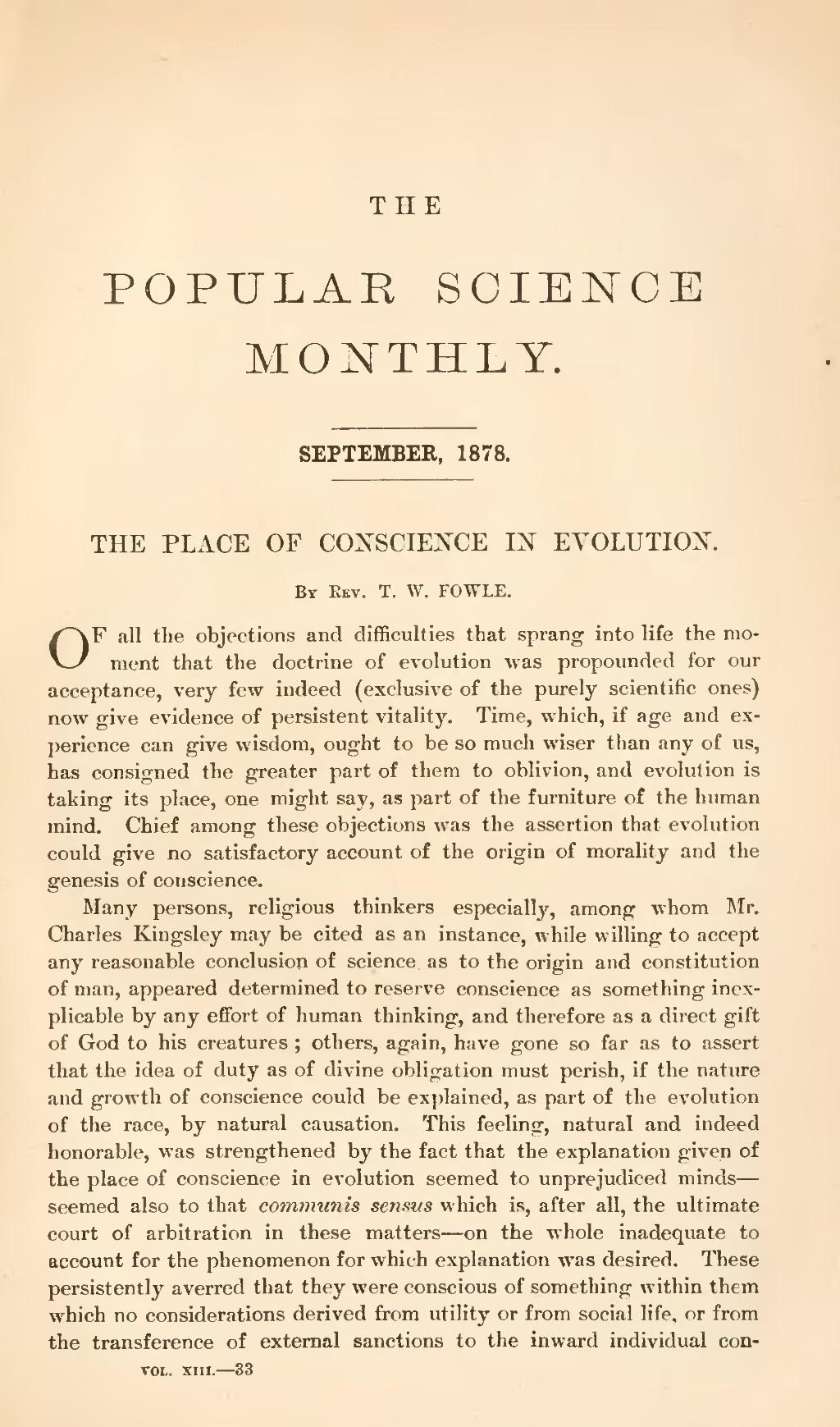THE
POPULAR SCIENCE
MONTHLY.
SEPTEMBER, 1878.
| THE PLACE OF CONSCIENCE IN EVOLUTION. |
By Rev. T. W. FOWLE.
OF all the objections and difficulties that sprang into life the moment that the doctrine of evolution was propounded for our acceptance, very few indeed (exclusive of the purely scientific ones) now give evidence of persistent vitality. Time, which, if age and experience can give wisdom, ought to be so much wiser than any of us, has consigned the greater part of them to oblivion, and evolution is taking its place, one might say, as part of the furniture of the human mind. Chief among these objections was the assertion that evolution could give no satisfactory account of the origin of morality and the genesis of conscience.
Many persons, religious thinkers especially, among whom Mr. Charles Kingsley may be cited as an instance, while willing to accept any reasonable conclusion of science, as to the origin and constitution of man, appeared determined to reserve conscience as something inexplicable by any effort of human thinking, and therefore as a direct gift of God to his creatures; others, again, have gone so far as to assert that the idea of duty as of divine obligation must perish, if the nature and growth of conscience could be explained, as part of the evolution of the race, by natural causation. This feeling, natural and indeed honorable, was strengthened by the fact that the explanation given of the place of conscience in evolution seemed to unprejudiced minds seemed also to that communis sensus which is, after all, the ultimate court of arbitration in these matters—on the whole inadequate to account for the phenomenon for which explanation was desired. These persistently averred that they were conscious of something within them which no considerations derived from utility or from social life, or from the transference of external sanctions to the inward individual con-
